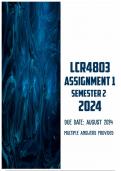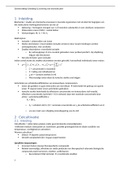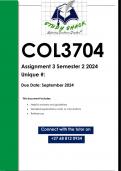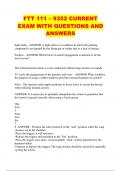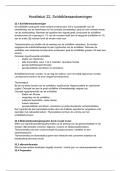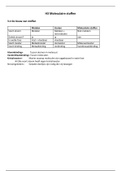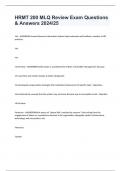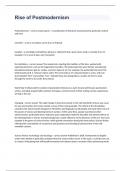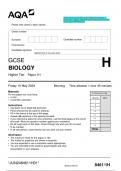Exam (elaborations)
LCR4803 Assignment 1 Semester 2 2024 | Due August 2024
LCR4803 Assignment 1 Semester 2 2024 | Due August 2024. Multiple Answers Provided. 1.1 In 1644 Milton developed his speech theory based on a quest for the truth. This was done to protest the licensing of publications by the government of his day. Today, 360 years later, licensing remains problem...
[Show more]
